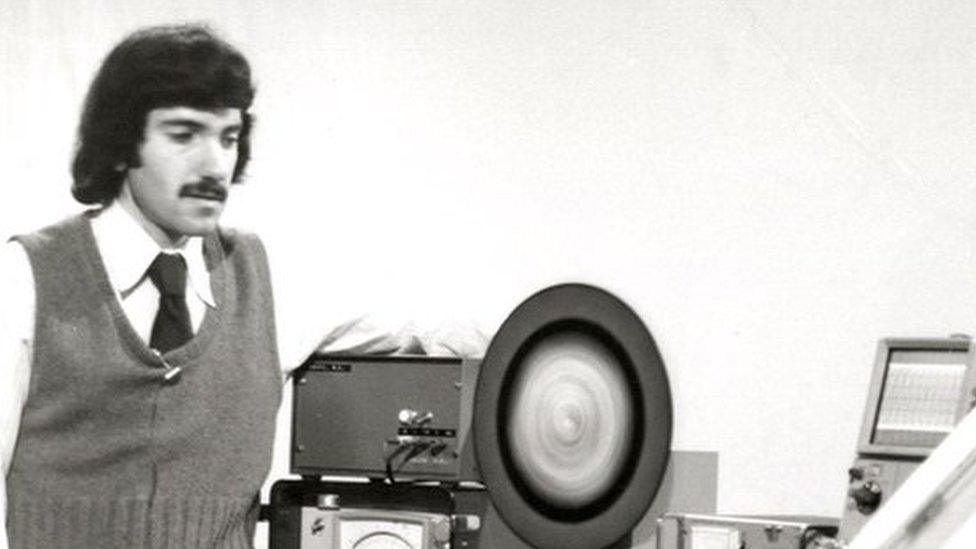Open University marks first graduation ceremony in 1973
- Published
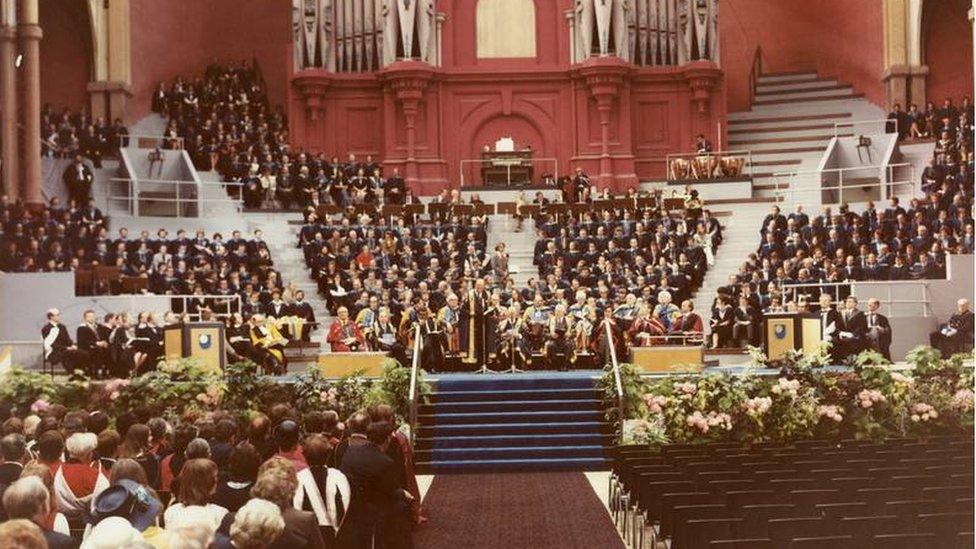
The OU held its first graduation ceremony in the Great Hall at Alexandra Palace, north London, despite its headquarters being based in Milton Keynes
The Open University (OU) is celebrating the 50th anniversary of its first graduation ceremony and pioneering of long-distance studying.
The institution allowed people who had not had the chance to go to a traditional campus to pursue degrees alongside other commitments.
The Milton Keynes-based university has released images and footage of the ceremony at Alexandra Palace, London, external.
Its vice chancellor said the university helped enable "social mobility".
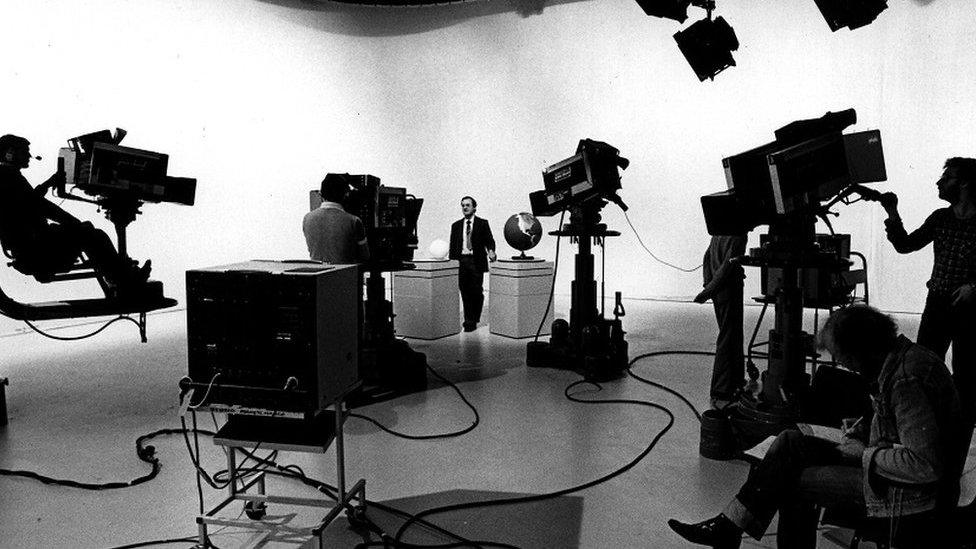
The OU's late-night TV programmes became cult viewing for students and insomniacs
The university teamed up with the BBC to produce course programmes, famously shown late at night for many years and during the day when regular programmes were not being broadcast.
The OU has said it has taught more than 2.3 million students across 171 countries since it was granted a royal charter in 1969, external.
Its first degree ceremony, attended by 600 students, was broadcast in full, live on BBC Two, external on 23 June 1973.
It was held at Alexandra Palace rather than the OU's Walton Hall campus in Milton Keynes due to the London venue's size and superior facilities.
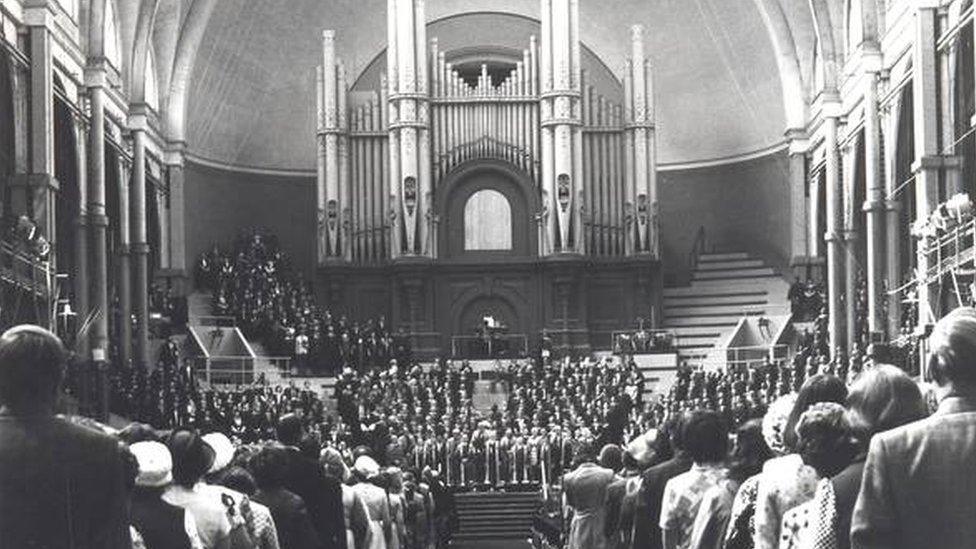
The OU has shared original photos from its first graduation ceremony to mark the milestone anniversary
Retired head teacher Michael Shaw, 82, was one of the OU's first cohort of graduates who picked up his degree scroll that day.
"In those days, teaching wasn't a degree subject, so when I heard that the OU was looking for volunteers to test materials for a ground-breaking BA in education, I jumped at the chance to get involved," he said.
"I took part in the trial and was fortunate enough to carry on and study for the degree I'd always wanted.
"Fifty years on, it's my proudest academic achievement."
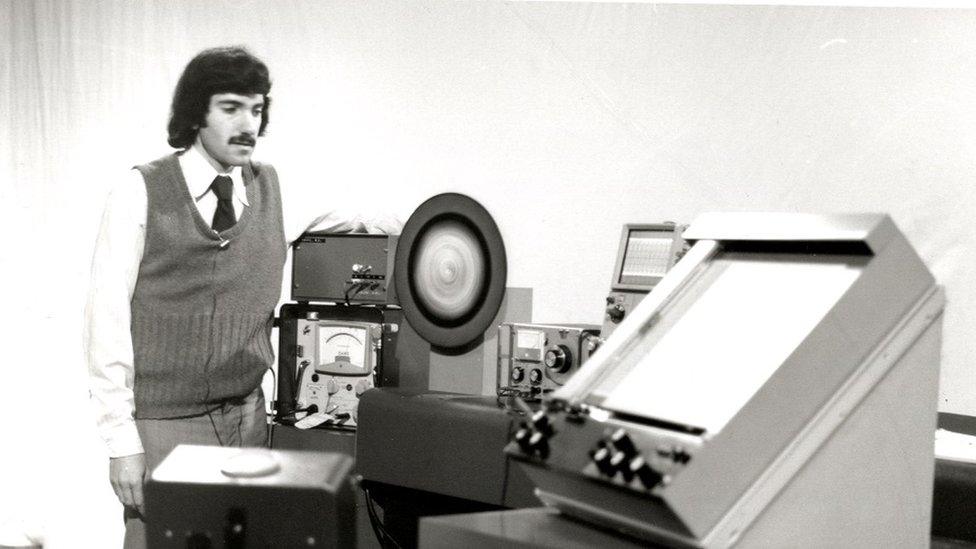
Regular Open University TV broadcasts were shown from 1971 until 2006
The new town of Milton Keynes was just two years old when the university was created. It celebrated its 50th anniversary in 2017.
It was chosen as the headquarters due to its ample space and proximity to London.
The university currently has 208,000 students on its roll, with 71% of its directly registered students in full or part-time jobs.
OU vice-chancellor Prof Tim Blackman said it was the UK's largest academic institution.
"I am struck by the social movement The Open University has become," he said.
"We are drivers of social justice and social mobility at an unparalleled scale.
"Our graduation ceremonies are a reminder of the transformative power of the OU and the strength and determination of our students, who have achieved their qualification often in the toughest of circumstances."
Lectures were first broadcast in 1971 on BBC Two, and course materials - including entire science experiment kits and even the brains of sheep - were sent through the post.
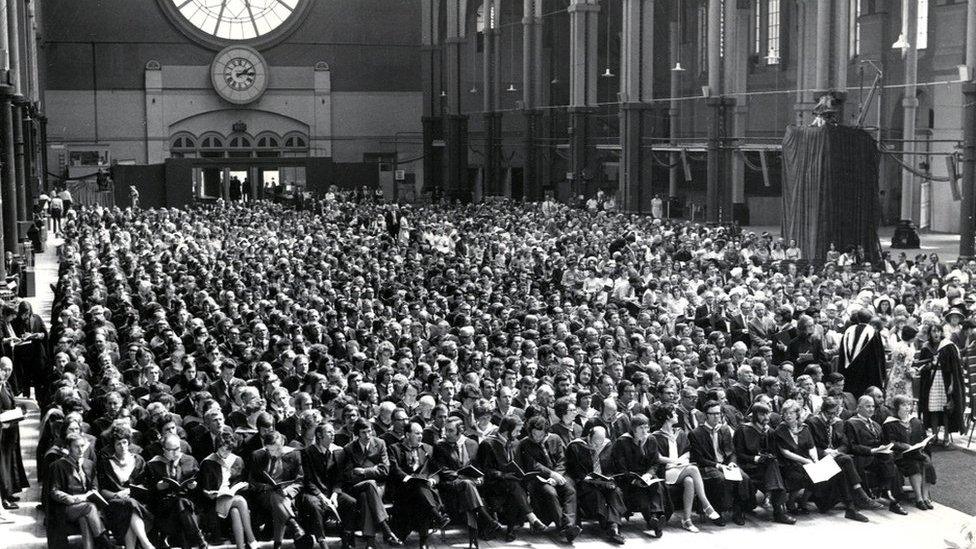
The OU's first degree ceremony was broadcast live on BBC Two
The final OU broadcast was made in 2006, external, by which time most of its content had moved to DVD and the web.
Clips and full programmes are available to view on the university's digital archive, external.
The university makes digital content for the BBC, while also co-producing about 30 TV and radio series a year with the broadcaster, with recent examples including Wild Isles, Blue Planet and The Planets all of which are still available on the BBC iPlayer.
The Open University came about under Prime Minister Harold Wilson, who said he had been working on the idea, external before becoming leader of the Labour Party.

Follow East of England news on Facebook, external, Instagram, external and Twitter, external. Got a story? Email eastofenglandnews@bbc.co.uk, external or WhatsApp us on 0800 169 1830
Related topics
- Published20 February 2023
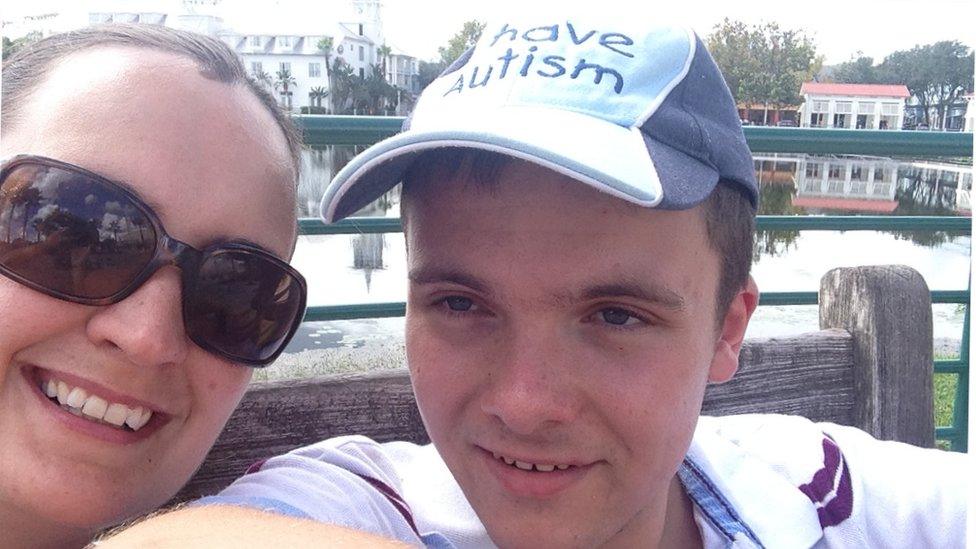
- Published7 March 2023
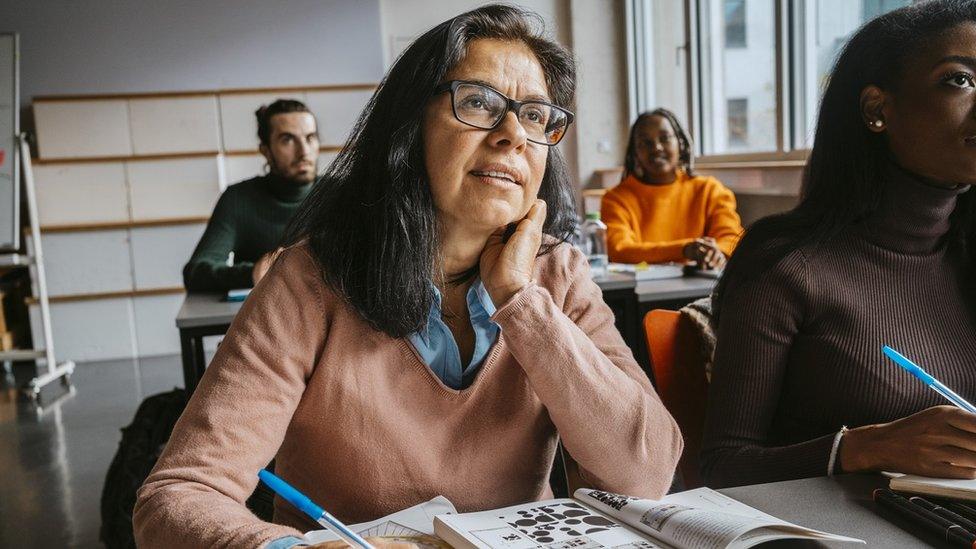
- Published2 February 2023
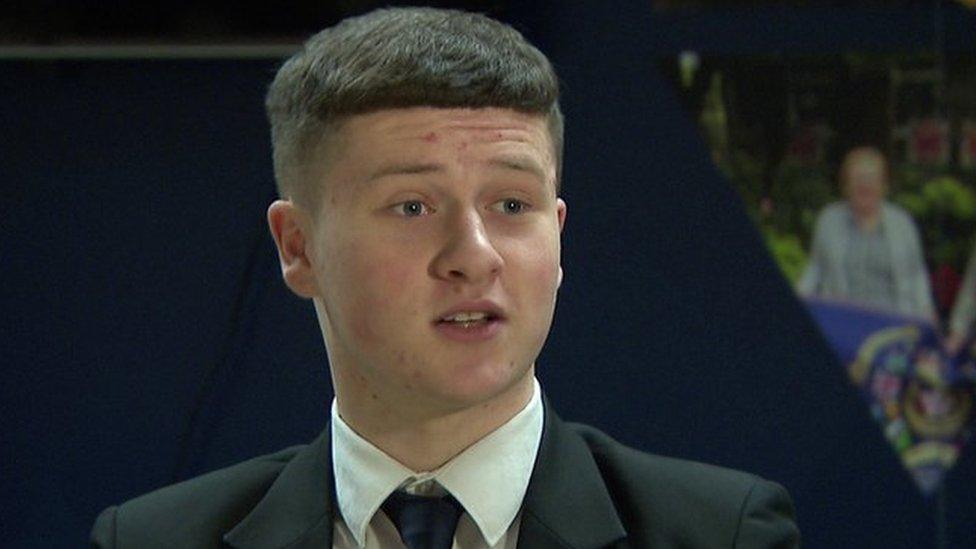
- Published1 June 2022
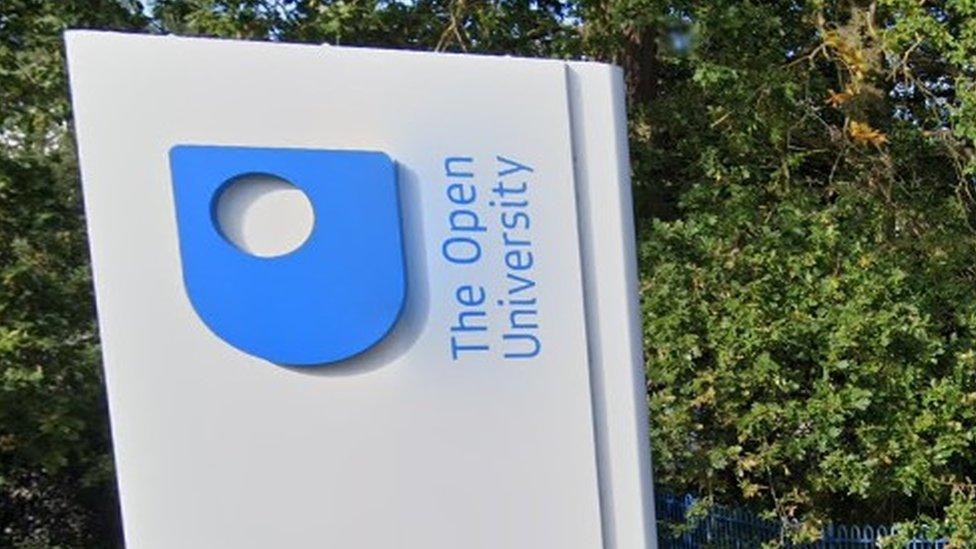
- Published17 April 2019
